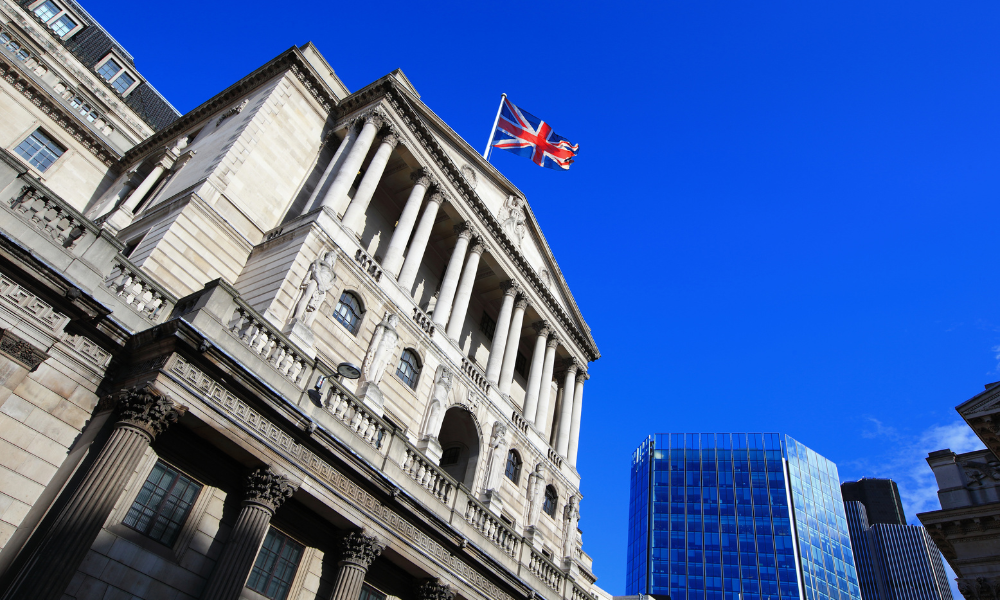Majority of Monetary Policy Committee supported the change

The Bank of England has decided to reduce interest rates, marking the second rate cut this year amid economic uncertainties stemming from recent tax changes and political developments abroad.
Voting 8-1, members of the central bank’s Monetary Policy Committee (MPC) decided to bring the base rate further down by 0.25% to 4.75% from 5.00%, following a reduction in August that marked the first cut since 2020. The rate was then held steady in September.
The decision comes amid mixed economic indicators. Recent data from the Office for National Statistics (ONS) showed a notable dip in inflation, with the UK’s Consumer Price Index (CPI) falling to 1.7% in September, down from 2.2% in August and the lowest since April 2021.
The drop in inflation below the bank’s 2% target is a key factor influencing the rate cut, as policymakers seek to support the economy while easing pressure on borrowers and mortgage holders.
According to UK Finance, the latest 0.25% base rate cut means that homeowners would be paying a monthly average of £28.98 less on their tracker mortgage and £17.17 less on their standard variable rate mortgage.
“Today’s decision to reduce the bank rate came as anticipated, despite last week’s eventful Budget, which has shifted forecasts for monetary policy as we head into 2025,” said Nicholas Mendes, mortgage technical manager at broker John Charcol. “This is the second rate cut in the UK’s loosening cycle, following similar moves by other European central banks, including the ECB, SNB, and Sweden’s Riksbank, which have already made multiple reductions this year.”
“Labour’s Budget last Wednesday introduced various tax increases, but bond markets reacted negatively when government debt levels were revealed the next day. Since October 30, gilt yields have risen sharply, increasing UK government borrowing costs. Markets are now concerned that increased government spending could add inflationary pressure, potentially prompting the Bank of England to slow the pace of future rate cuts.”
The Bank of England has indicated a “gradual approach” to easing, Mendes noted, with market expectations now adjusted to suggest two or three rate cuts in 2025, down from earlier forecasts of four or five.
What will now happen to mortgage rates?
While the base rate cut may influence mortgage rates, Mendes stressed that lenders consider multiple factors, including swap rates, market conditions, and funding costs, when setting mortgage pricing.
“A drop in the bank rate doesn’t necessarily result in an immediate reduction in mortgage rates across the board,” he explained, adding that anticipated reductions are often priced in by the market ahead of time.
Looking ahead, Mendes anticipates mortgage rates to resume a downward trend before the end of the year, likely returning to recent lows and potentially stabilising in the low 3% range for fixed rates in 2025. Lower mortgage rates, he said, could further boost buyer confidence, encouraging first-time buyers and home movers to re-enter the market.
“With more buyers entering the market, competition is likely to rise, which may drive prices upward,” he added. “As a result, property prices are projected to increase by approximately 5% in 2025.”
The Bank of England’s next policy meeting is scheduled on December 19, where further insights on its monetary policy trajectory may emerge.
Any thoughts on the latest base rate decision announced by the Bank of England today? Share them with us by leaving a comment in the discussion box at the bottom of the page.



